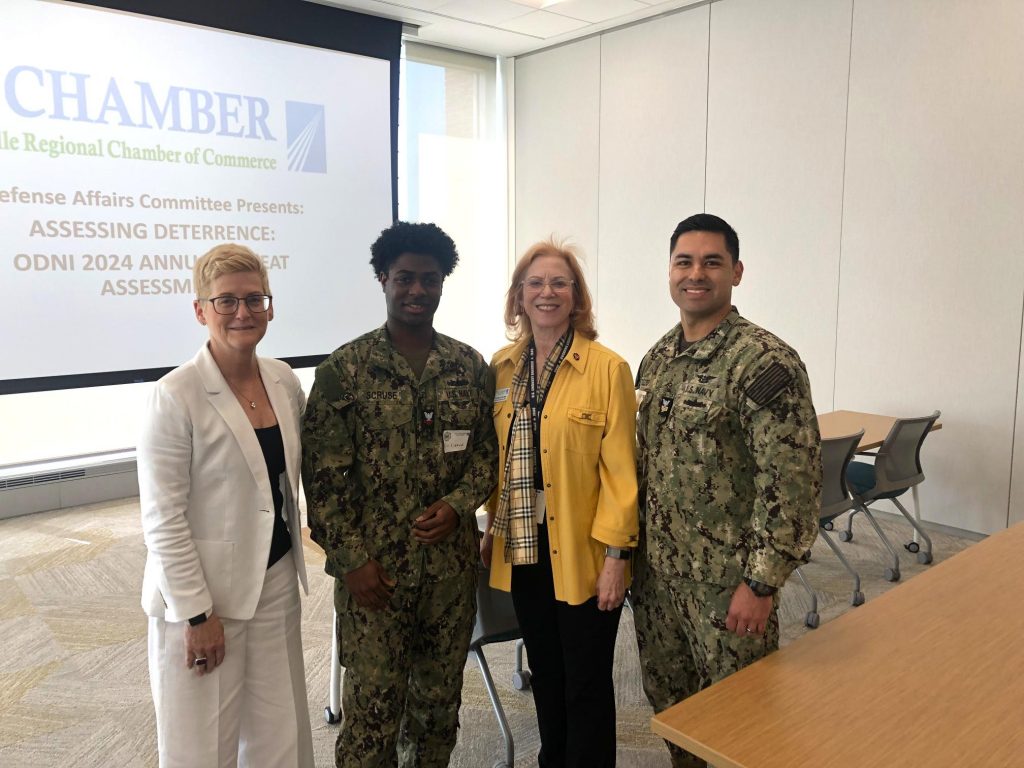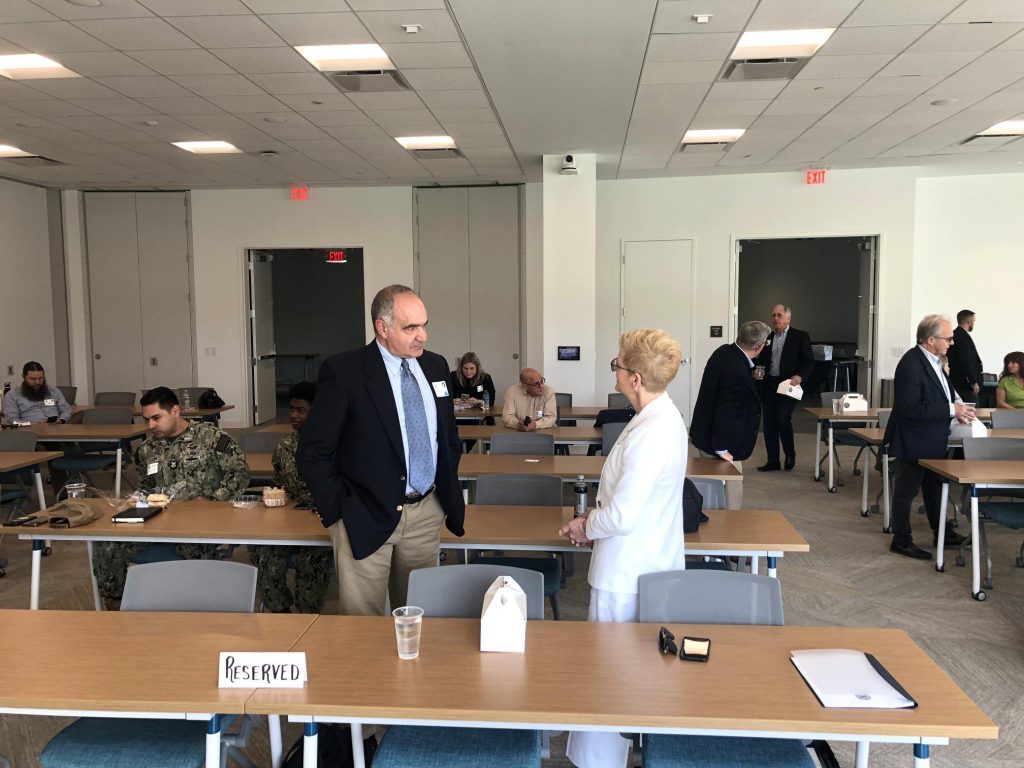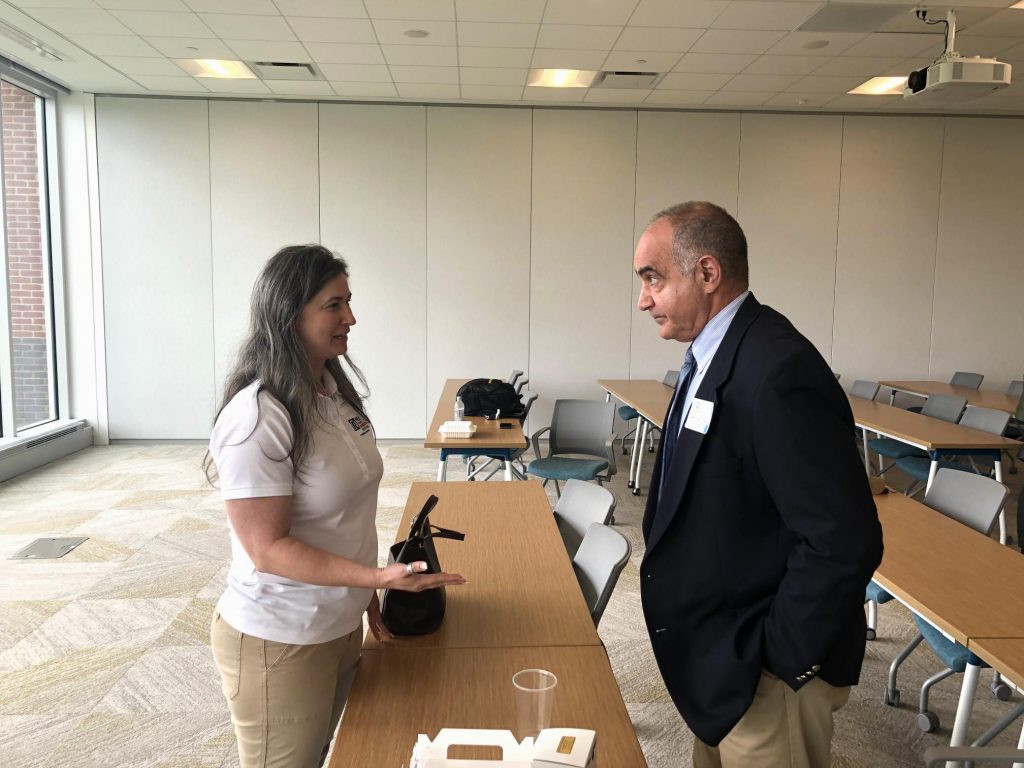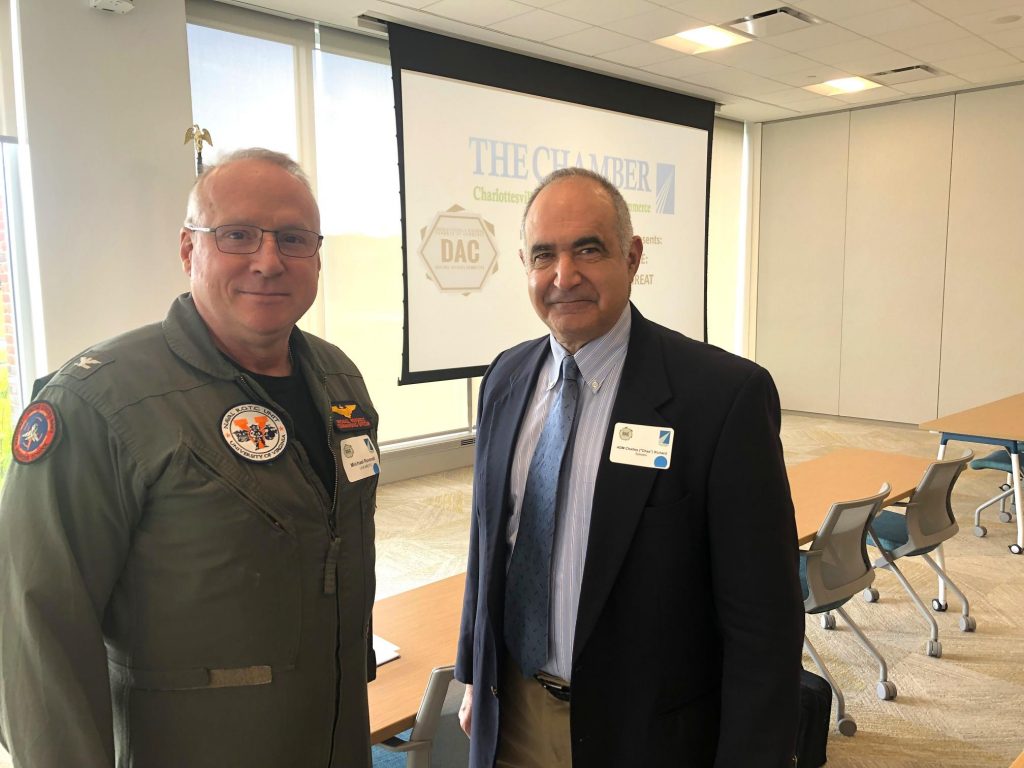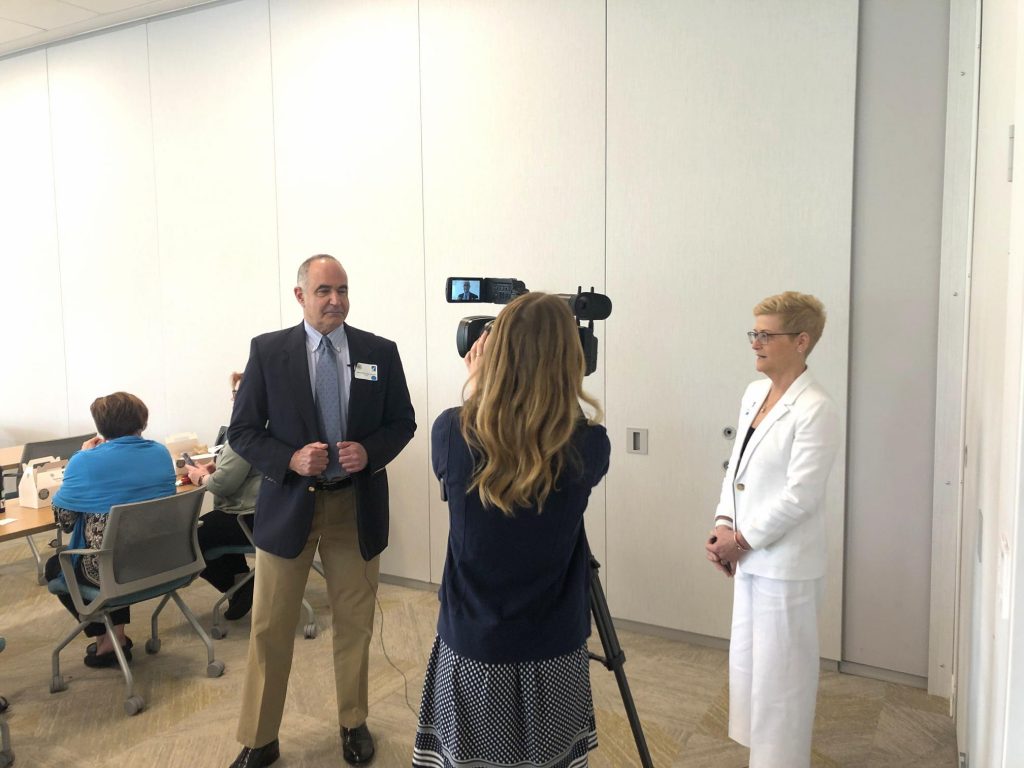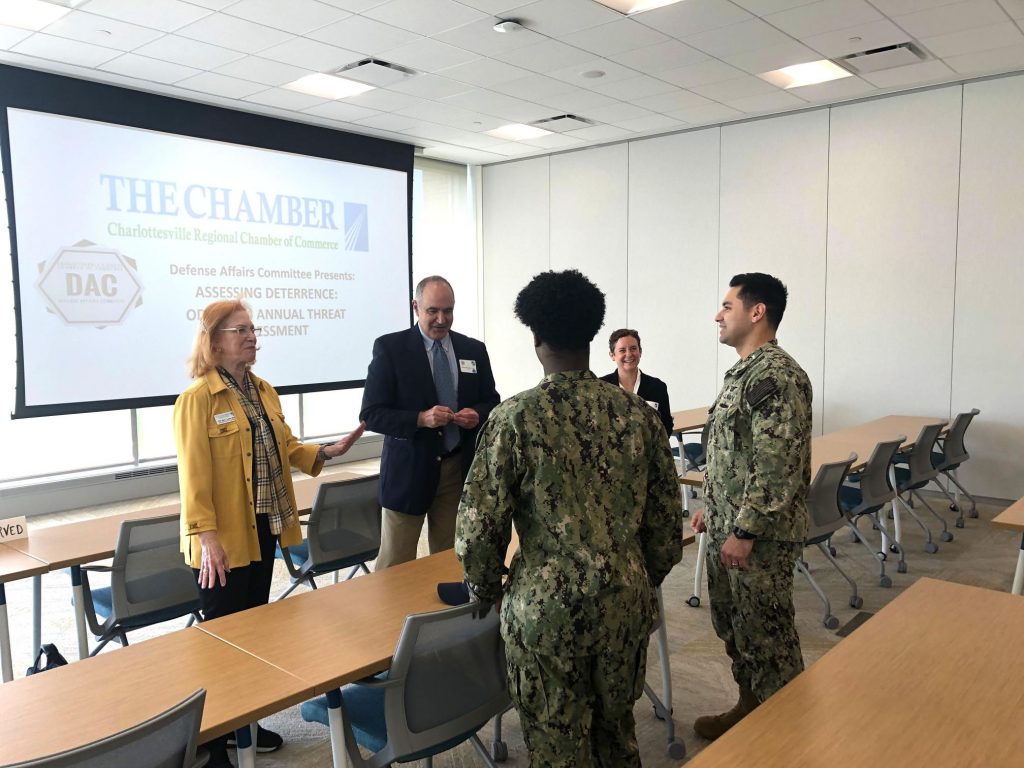DAC – National Intelligence Threat Assessment

The Chamber Defense Affairs Committee (DAC) met April 25 for its Quarterly Meeting. Recently retired US Navy Admiral Charles "Chas" Richard shared his analysis of the Intelligence Community’s annual worldwide Threat Assessment released by the Office of the Director of National Intelligence (ODNI).
ADM Richard recommended the Congressional Strategic Posture Commission Report as an important reference alongside the ODNI Threat Assessment.
Below are selected comments from ADM Richard's talk.
“My basic assessment is that the ship is sinking. The ship is sinking very slowly, and our deterrence is eroding.”
“We’re now in a world where there are two nuclear-capable great powers, Russia and China, who fundamentally disagree with the rules-based international order that the United States and its allies so carefully and with great effort put into place after the end of World War II. They disagree with that and are attempting to change it … and they’re willing to do so by force.”
“What’s different about Russia and China: it has been at least 30 years since the United States and our allies faced an opponent who can escalate to any level of violence in any domain. They can do it worldwide, and they can do it whenever they choose.”
“You'd have to go back to the peak years of the Cold War – when we were inventing the ballistic missile submarine and we were inventing the intercontinental ballistic missile – to point to a time in history where a nation's nuclear capabilities were expanding as fast as China is today.”
“China's got a bigger Navy than we do, and it's getting bigger … They will shortly have a bigger air force. They outnumber us in intermediate short-range and long-range conventional missiles. They have formidable cyber capabilities.”
“Why is China doing that? Well, the first thing they started doing 20 years ago is looking at how the US does business and started developing systems that are called Anti-Access/Area Denial. They want to keep us from being able to come to the aid of an ally in the Pacific, and so they very specifically looked at how we're put together and started developing capabilities designed to challenge that, with the space and cyber capabilities being two good examples of that.”
“Russia, they are obviously demonstrating their desire to return to great power status and how to reshape the international border particularly in Europe.”
“They are about 90% modernized; they started long before we did. We’re 0% modernized; we actually don't get any new delivery systems delivered until around 2030. Russia has modernized all of its strategic forces, its nuclear command control, it’s warning systems, et cetera. Now, obviously its conventional ground forces did not acquit themselves very well in the Ukraine war. I'd be cautious to think that that somehow extends to the rest of their military.”
“Some of you were like me and grew up in the Cold War, and it was a credible thing that we worried about – that we would wake up at some point and there’d be 5000 ICBMs and bombers coming over the pole. And I tell you I think the chances of that happening today are about the same as getting hit by an asteroid. The reason a bolt out of the blue is unlikely is because we made it unlikely. We invented the missile submarine to give you a secure second strike capability. We invented the idea of launch under warning and launch under attack for our intercontinental ballistic missiles. We had to design the satellites and the radar and the command and control. We had to figure out how to operate it. We had to invent all of that. So the reason nobody's going to try a bolt out of the blue is because it's probably not going to work. And I say that because you have generations behind us that don't know all that. If you're not careful, you could easily undo the very things that make it unlikely and you could make it likely again, and including maybe even a conventional or cyber version of the same thing.”
“My personal opinion is we have allowed ourselves over the last 30 years to completely focus our processes on reducing fiscal risk and technical risks at the expense of operational risk. Because the consequence of assuming more operational risk, particularly in a great power world, were very small. So we optimized not to spend an extra nickel or not to take any technical risks and are willing to delay things in order to accomplish it.”

